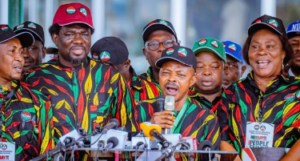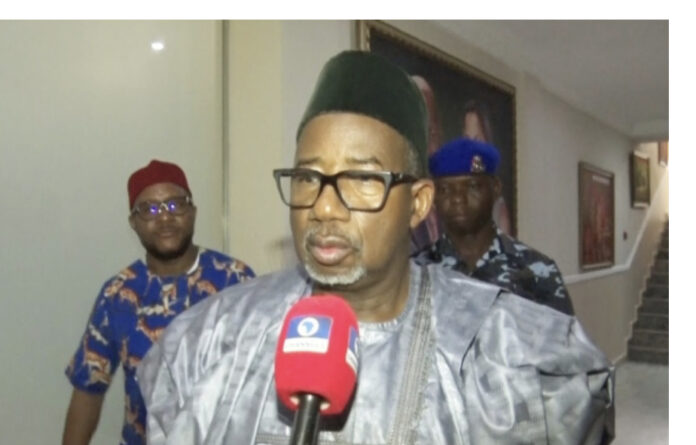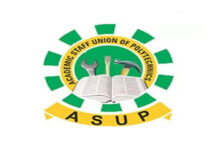In a heartfelt appeal, the governor of Bauchi State, Bala Mohammed, has urged the labour unions to reconsider their planned strike, emphasizing the potential detrimental effects on Nigeria’s already fragile economy.
His comments come on the heels of a significant announcement by the Nigeria Labour Congress (NLC) and the Trade Union Congress (TUC) to commence an indefinite strike starting Monday. The labour unions’ decision is primarily driven by the recent hike in electricity tariffs and the federal government’s inability to reach an agreement with them regarding a new minimum wage.
Governor Mohammed, who made his plea shortly after a visit to the Governor of Abia State, Alex Otti, was accompanied by Edo State Governor Godwin Obaseki and members of the Peoples Democratic Party (PDP) National Working Committee (NWC). During his visit to Isiala-Ngwa Local Government Area, the hometown of Governor Otti, Mohammed expressed his deep concerns about the impending strike and its potential to exacerbate the economic woes faced by ordinary Nigerians.
“I have always prioritized the welfare of workers, striving to ensure they receive the best in terms of salaries and wages,” Mohammed stated. “However, it is crucial that these wages are within the realm of affordability for both sub-national and local governments. The negotiations undertaken by the Federal Government must reflect this reality. Currently, some state governments are struggling to pay the existing minimum wage of N30,000. If the proposed increases are implemented without due consideration of our financial capabilities, it could lead to dire consequences.”

Governor Mohammed’s plea highlights a critical issue: the financial constraints faced by many state governments. He pointed out that even at the current wage levels, some states are unable to meet their salary obligations. This fiscal reality, he argued, must be taken into account by the labour leaders who are pushing for higher wages. “Labour leaders are indeed true leaders. They must recognize the potential repercussions of their actions. A prolonged strike could cripple our economy and inflict further hardship on workers and the general populace. It is essential that we find a compromise that balances the needs of the workers with the economic realities of the states and local governments,” he added.
The governor’s remarks also touched on the broader implications of the strike, warning that it could plunge the nation into a state of extreme hardship. He called on the labour unions to engage in dialogue and seek a solution that considers the financial limitations of various state governments.
In addition to addressing the issue of the strike, Governor Mohammed also spoke about the importance of local government autonomy. He emphasized that the state cannot function effectively without the active participation of local governments. This statement underscores the interconnectedness of different levels of government and the need for cooperative governance to achieve sustainable development.
Joining Governor Mohammed on his visit to Governor Otti were several prominent PDP members, including former Deputy Senate leader Abdul Ningi and the acting National Chairperson of the PDP, Umar Damagum. Their presence underscores the party’s collective concern over the potential impact of the strike and their commitment to finding a resolution.
In conclusion, Governor Mohammed’s appeal to the labour unions is a call for reason and moderation. He urges all stakeholders to consider the broader economic implications and work towards a solution that ensures the welfare of workers without jeopardizing the financial stability of the states. His message is clear: a balanced approach is necessary to navigate the complex challenges facing Nigeria’s economy and its workforce.




